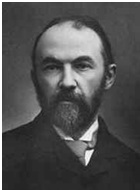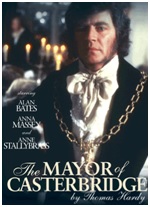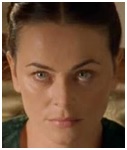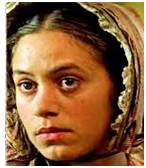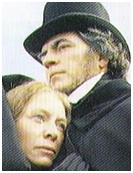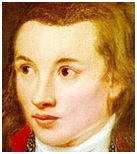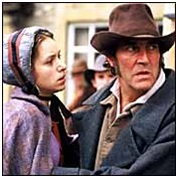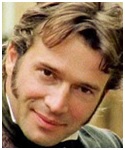|
 |
|
 |
|
|
||
The Mayor of Casterbridge - Leadership and Ethics
The Mayor of Casterbridge (1886)
Written by the Englishman, Thomas Hardy (1840-1928), pictured right.
Fun facts
Key characters Michael Henchard, the mayor of Casterbridge. Susan, his wife. Donald Farfrae, his employee. Lucetta Templeman, his ex-lover. Elizabeth-Jane, Susan’s daughter. Newson, sailor.
The story In a drunken rage, a young farm worker, Michael Henchard (Alan Bates, pictured right, in the BBC production) sells his wife, Susan, and daughter, Elizabeth-Jane, to a sailor, Newson. The next morning, unable to find them, the remorseful Henchard goes into a church and swears an oath that he will not drink alcohol for 21 years, the length of his life so far. Years later, after living with Newson and now believing him to be dead, Susan goes looking for Henchard with Elizabeth-Jane. They arrive in Casterbridge and discover he is the mayor. She re-marries him, and deceives him into thinking that Elizabeth-Jane is his daughter (actually she is Newson’s, and Henchard's daughter died). Henchard, now the owner of a corn business, has hired a young charismatic and talented, Donald Farfrae, as his new manager. Farfrae starts seeing Elizabeth-Jane. But, out of jealousy and envy, Henchard asks him to end the relationship and leave his job. He becomes a competitor, driving Henchard into eventual bankruptcy and then buying his house and business. Soon after Susan’s death, Henchard reads one of her letters which says that Elizabeth-Jane
isn’t his daughter. Much to her dismay, his love for her turns into hatred. Elizabeth-Jane leaves him and moves in with Lucetta Templeman (Polly Walker, pictured right, in the ITV production) Lucetta courted Henchard during Susan’s absence and has just returned to marry him. But Lucetta falls in love with Farfrae and marries him instead, asking Henchard to return her letters. The deliverer of the letters stops at an inn and reads them aloud, prompting the local people to humiliatingly parade effigies of Lucetta and Henchard. Farfrae is away when this happens, but Lucetta dies from the shock. Meanwhile the bankrupt Henchard has returned to farm work and alcohol. He hates Farfrae, who is
now mayor. The morning after Lucetta’s death, Newson arrives at Henchard’s house, asking for Elizabeth-Jane. Having grown fond of her, Henchard tells him that she is dead and Newson leaves distraught. Elizabeth-Jane stays with Henchard and starts dating Farfrae. Newson returns and Henchard leaves town to avoid his anger. Elizabeth-Jane meets her father (Newson), hears of Henchard’s monstrous lie and agrees to marry Farfrae. On the night of their wedding, she snubs Henchard (pictured right in the ITV production), who promises never to return. She soon regrets her unkindness and (with Farfrae) goes looking for him. They discover Henchard has died alone and penniless in the countryside. His will says that his dying wish is to be forgotten.
Lessons for leadership and ethics 1. People matter more than power The mayor’s job and ambition become much less important to Henchard than people’s love and respect, particularly of Elizabeth-Jane (Jodhi May in the ITV production, pictured right). The sale of his wife and daughter eventually leads to his solitary and miserable death.
2. Change and look to the future Farfrae is more willing to change and introduce new technology (like a seed sowing machine). In contrast, Henchard:
3. Know yourself Henchard’s preoccupation with his weaknesses blinds him to his strengths, particularly his
determination to create a successful business despite his:
Henchard (Alan Bates) is pictured with his wife, Susan (Anne Stallybrass) in the BBC production.
4. Fate can be fatal Thomas Hardy believed that your life is driven by:
So Henchard’s gift to Elizabeth-Jane on her wedding day is a caged goldfinch, representing how imprisoned he was by his personality and past. “Character is fate”, Thomas Hardy says in the book, quoting, Novalis, an eighteenth century German writer, pictured right.
5. Character counts Henchard pays dearly for his big mistakes - his:
But he is a man of principle who:
Henchard (Ciara Hinds) is pictured right with Elizabeth-Jane (Jodhi May) in the ITV production.
6. Triumph accompanies disaster Henchard loses:
Elizabeth-Jane finds love with Farfae, despite her youth that taught her: “happiness was but the occasional episode in a general drama of pain”. 7. Don’t lose your self-respect Henchard dies with the tragic desire to be forgotten. Farfrae (James Purefoy in the ITV production, pictured right) is well respected because of his:
Key quote on change She did not cease to wonder at the persistence of the unforeseen (talking about Elizabeth-Jane)
Key quotes on success It is not by what is in this life but by what appears, that you are judged. Some folk want their luck buttered, Mrs Cuxcom (a peasant in Casterbridge)
Key quote on happiness She whose youth had seemed to teach that happiness was but the occasional episode in a general drama of pain (talking about Elizabeth-Jane)
Two literature websites to recommend 1. sparknotes.com 2. litcharts.com
A big thank you to... The BBC for the pictures. |
|
|
||
|
|
||
| Copyright © wisdomtowin.com 2025 All Rights Reserved | ||
|


